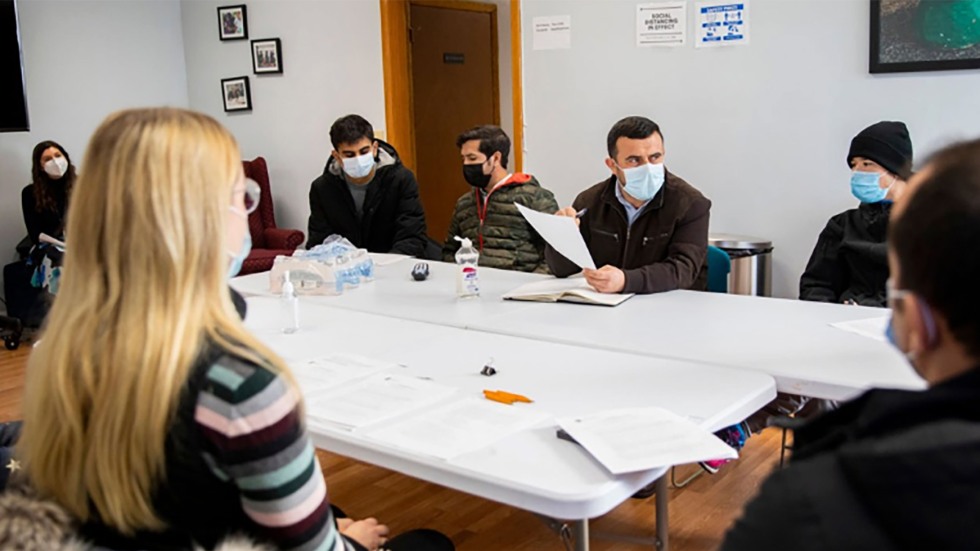On a chilly winter afternoon at the Refugee Dream Center in Upper South Providence, a group of Afghans chatted around a table that was bare, save for a bottle of hand sanitizer. Speaking Dari and donning protective masks amid COVID-19’s Omicron surge, they swapped stories about their work, their families and the weather.
The exchanges might have seemed unremarkable to any casual bystander. Yet the circumstances were far from typical. Many of the new arrivals to Rhode Island had worked in Afghanistan with the United States military as pilots, cooks or translators — until August 2021, when the Taliban assumed control of the country, jeopardizing the safety of anyone with ties to the American government.

